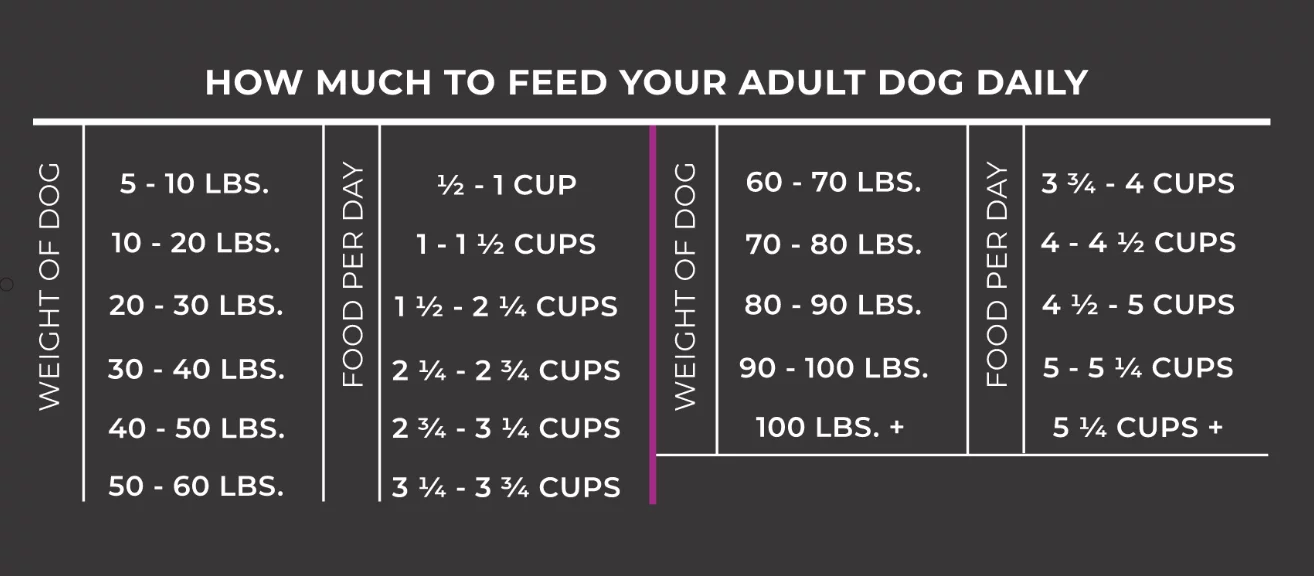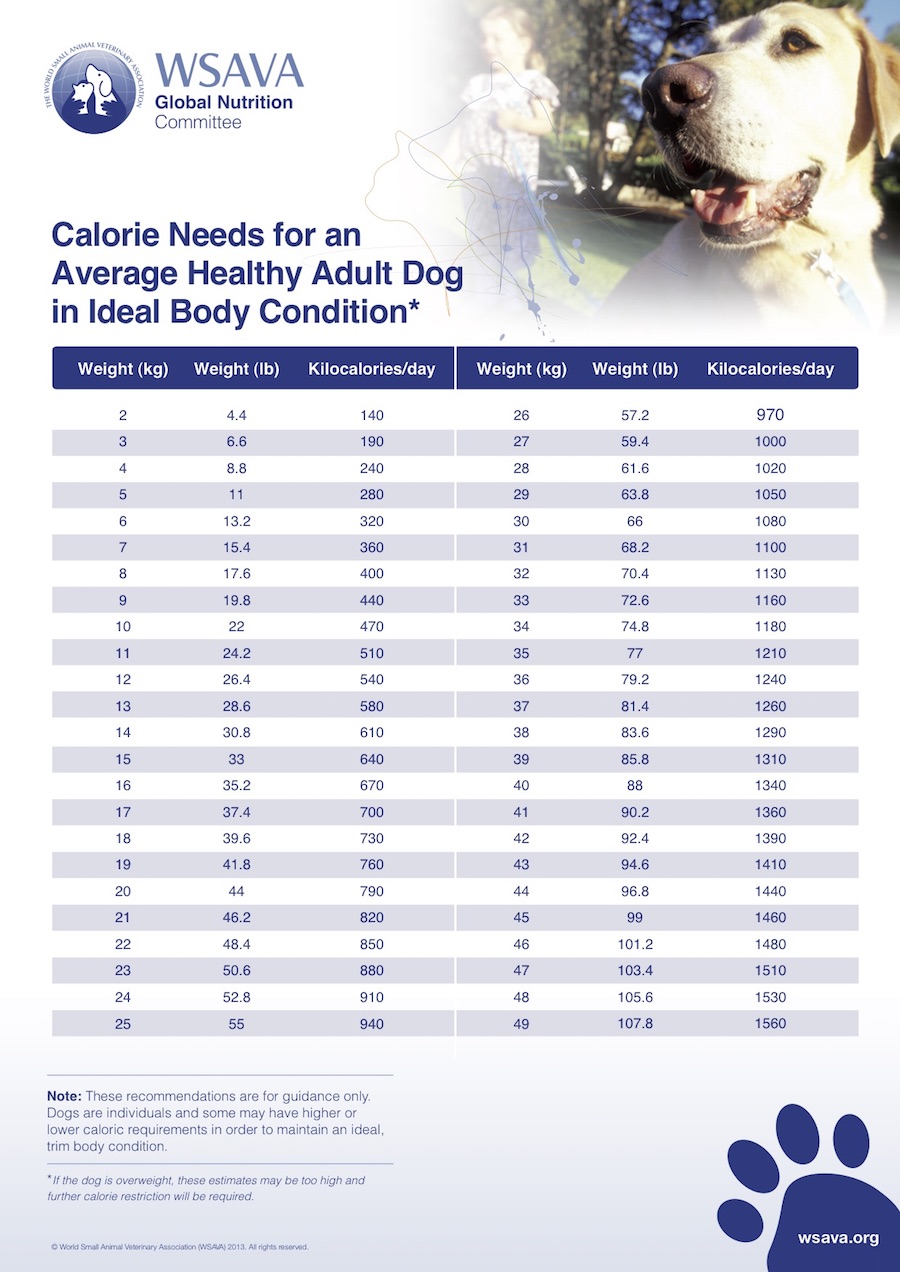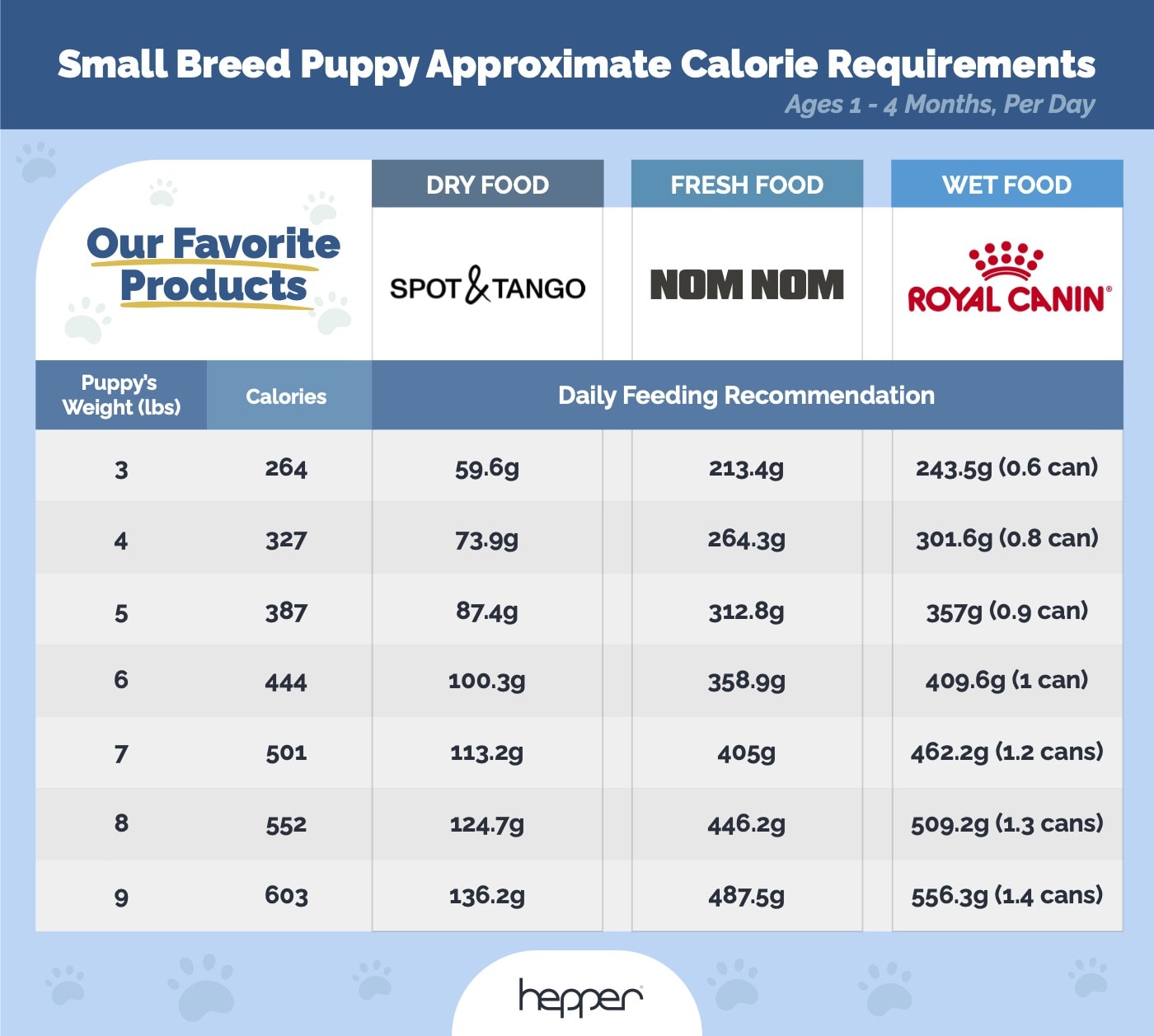How Many Calories A Day Should My Puppy Eat
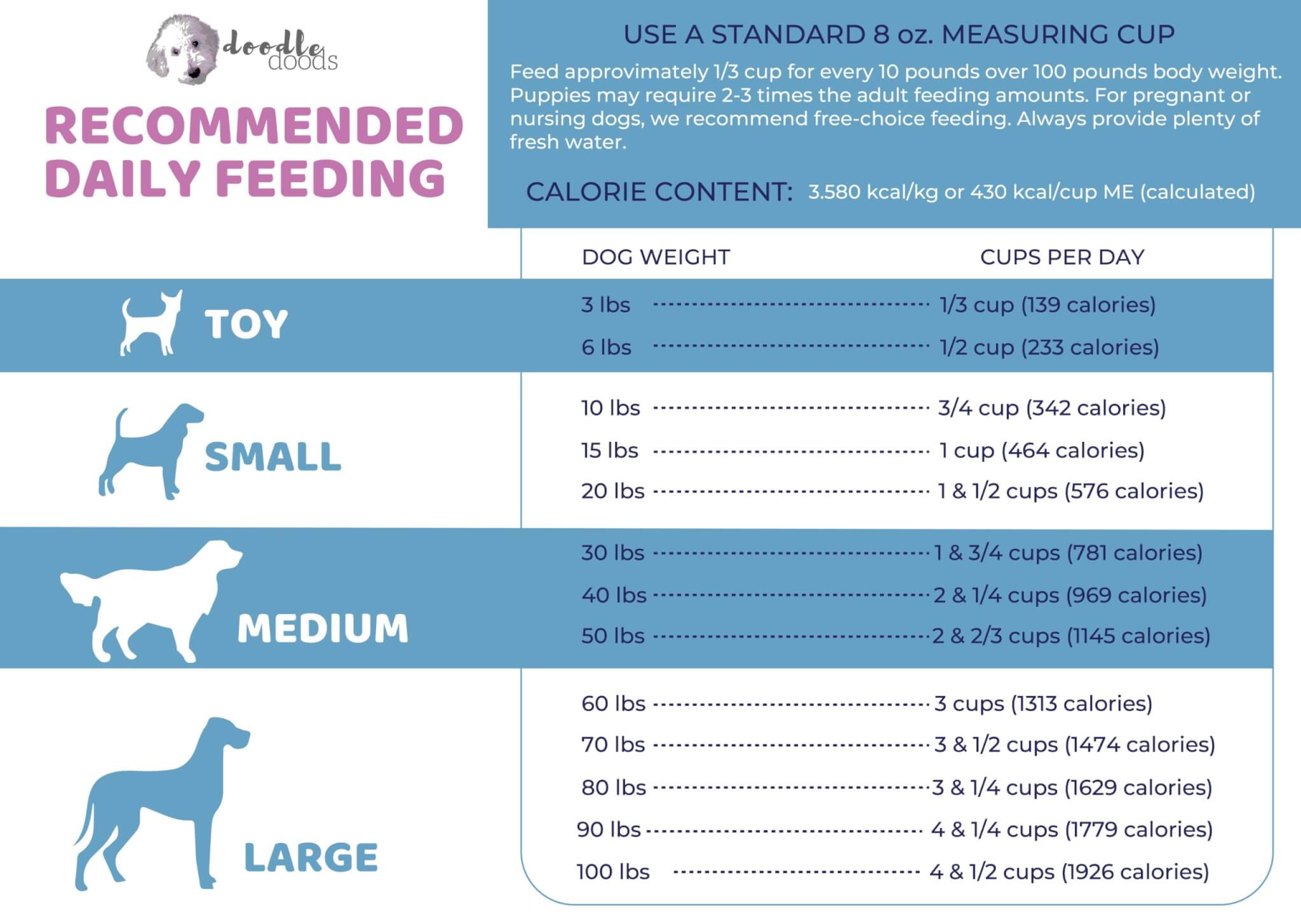
Imagine a tiny, furry ball of energy, all wobbly legs and boundless enthusiasm, bouncing around your living room. That’s your new puppy! But beyond the cuddles and playtime, a big question looms: how do you fuel this adorable dynamo to ensure they grow into a healthy, happy dog?
The answer isn't as simple as filling a bowl and hoping for the best. Determining the right caloric intake for your puppy depends on several factors, including breed, age, weight, and activity level. Understanding these variables is crucial for setting your puppy up for a lifetime of well-being. This article will serve as a comprehensive guide to navigate the nutritional needs of your growing companion.
Understanding Puppy Nutritional Needs
Puppies have significantly different nutritional needs compared to adult dogs. They require a diet rich in calories, protein, and specific nutrients to support their rapid growth and development. A deficiency or excess of certain nutrients can lead to serious health problems.
According to the American Kennel Club (AKC), choosing a puppy food specifically formulated for their life stage is the first crucial step. These foods are designed to provide the optimal balance of nutrients.
Factors Influencing Caloric Needs
Several factors influence the number of calories your puppy needs daily. These include breed size, age, weight, and activity level.
Breed Size: Smaller breeds generally have a faster metabolism than larger breeds. However, they also reach maturity quicker, meaning their high-calorie puppy phase is shorter. Giant breed puppies require careful monitoring to prevent overgrowth, which can lead to skeletal issues.
Age: Very young puppies need more calories per pound of body weight than older puppies. As they grow, their caloric needs will gradually decrease.
Weight: Regularly weighing your puppy is essential for tracking their growth and adjusting their food intake. A healthy weight gain is steady and consistent, not rapid or erratic.
Activity Level: A highly active puppy who spends their days running and playing will naturally need more calories than a more sedentary puppy. Adjust their food accordingly to match their energy expenditure.
Calculating Your Puppy's Calorie Needs
While a veterinarian can provide a precise calculation tailored to your puppy, here's a general formula to estimate their daily caloric needs. First, you need to determine your puppy's Resting Energy Requirement (RER).
RER = (Body weight in kilograms ^ 0.75) x 70
To convert your puppy's weight from pounds to kilograms, divide their weight in pounds by 2.2. Once you've calculated the RER, you'll need to multiply it by an activity factor.
For example, a moderately active puppy might have an activity factor of 2.0, while a very active puppy could have a factor of 3.0. The resulting number is the approximate daily caloric intake your puppy needs.
Choosing the Right Food
Select a high-quality puppy food that lists a specific meat source (e.g., chicken, lamb) as the first ingredient. Avoid foods that are primarily grain-based or contain excessive fillers.
Pay attention to the guaranteed analysis on the food label, which indicates the percentages of protein, fat, and fiber. For puppies, look for a food with a high protein content (around 22-32%) and a moderate fat content (around 8-18%).
Consult with your veterinarian about the best food options for your puppy, particularly if they have any specific health concerns. They can recommend brands and formulas that meet your puppy's unique needs.
Monitoring and Adjusting
Regularly monitor your puppy's body condition. You should be able to feel their ribs easily, but not see them. A slight waist should be visible when viewed from above.
If your puppy is gaining too much weight, reduce their food intake. If they seem underweight or always hungry, increase their food. Gradual adjustments are always best to avoid digestive upset.
Remember, these are general guidelines. Every puppy is different, and their caloric needs may vary. Working closely with your veterinarian is the best way to ensure your puppy is getting the right amount of food to support their optimal growth and development.
Raising a puppy is a journey filled with joy, challenges, and a whole lot of love. By understanding their nutritional needs and providing them with the right food, you're setting them up for a long, healthy, and happy life. So, embrace the puppyhood chaos, cherish the cuddles, and remember that every bite counts!
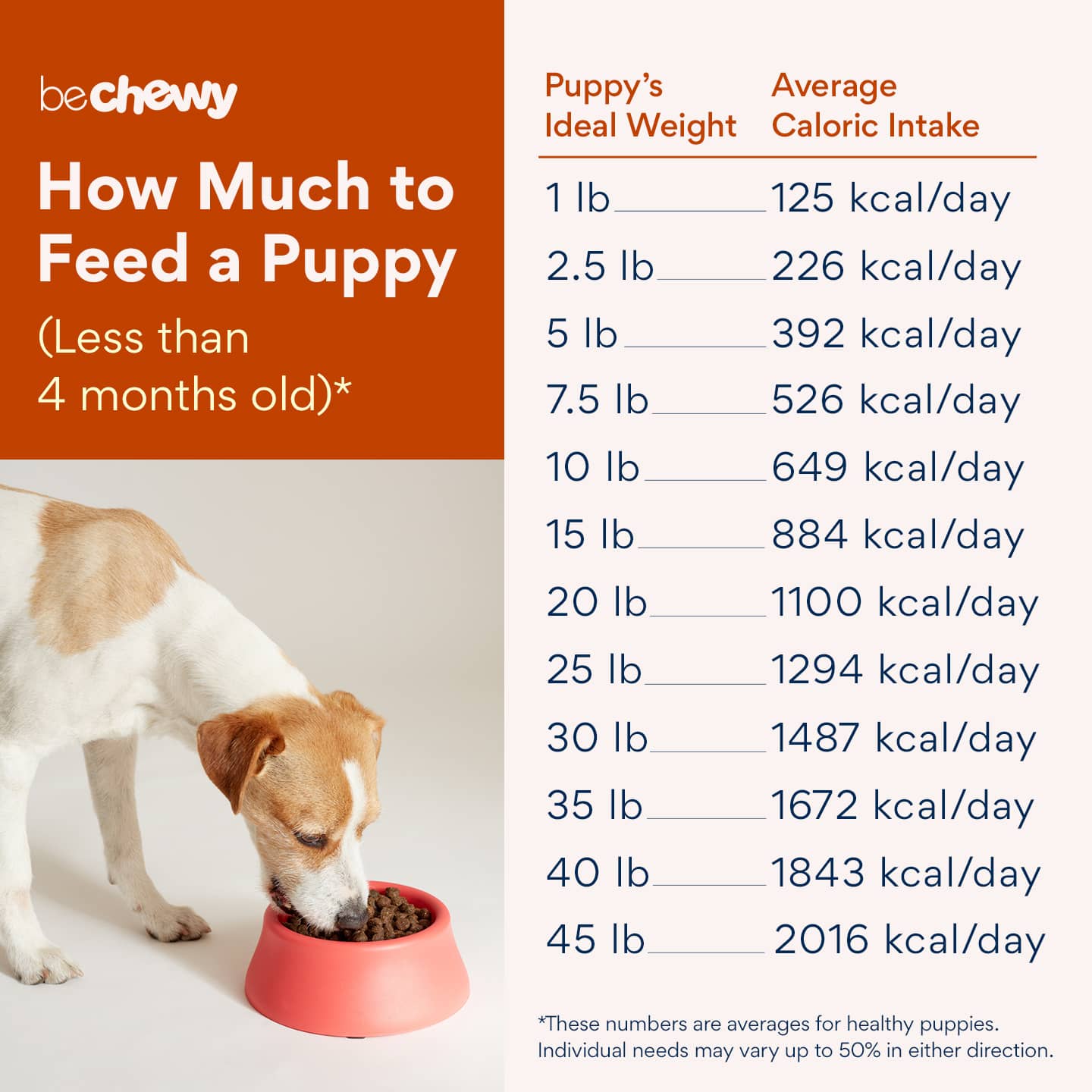
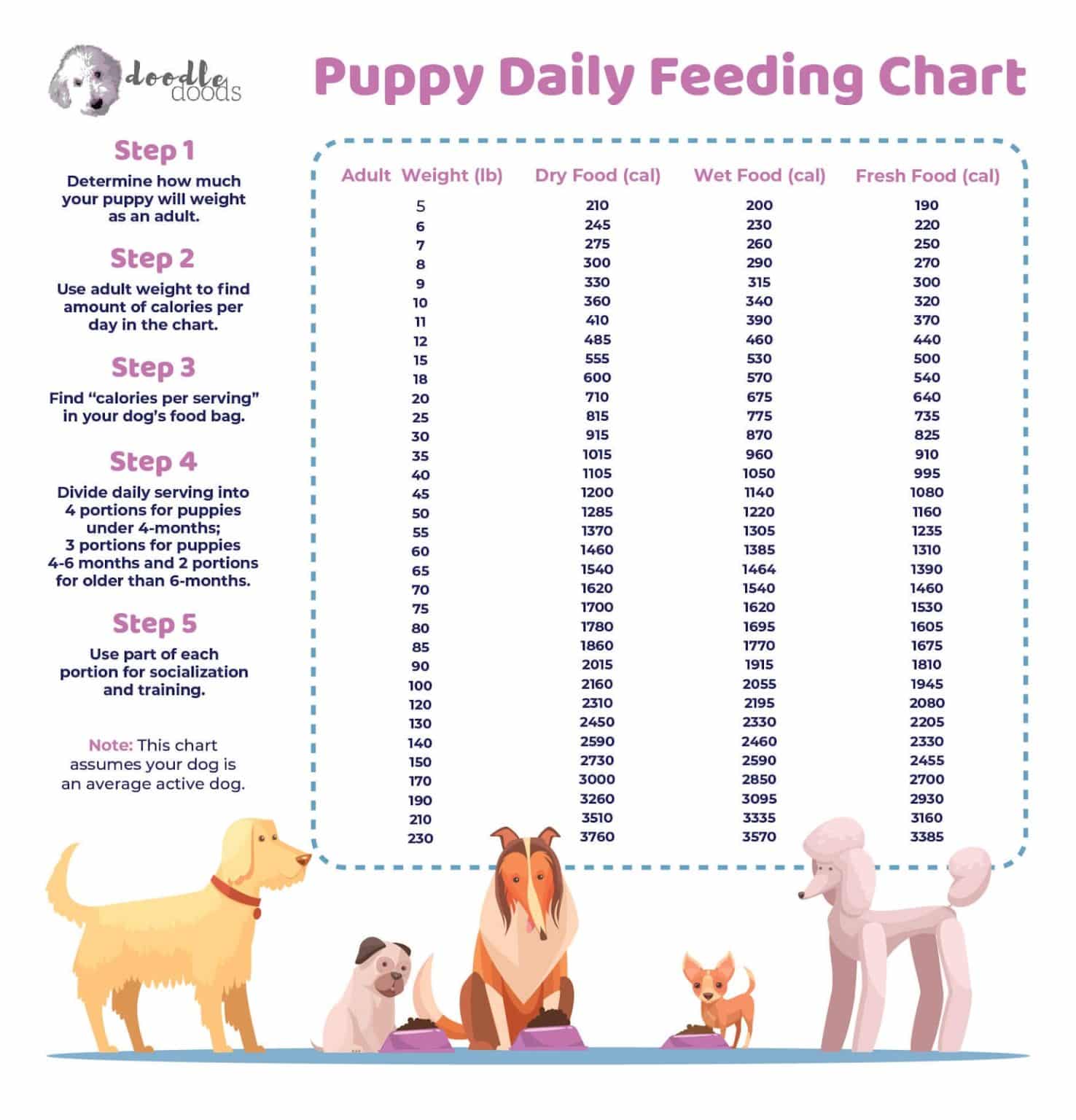


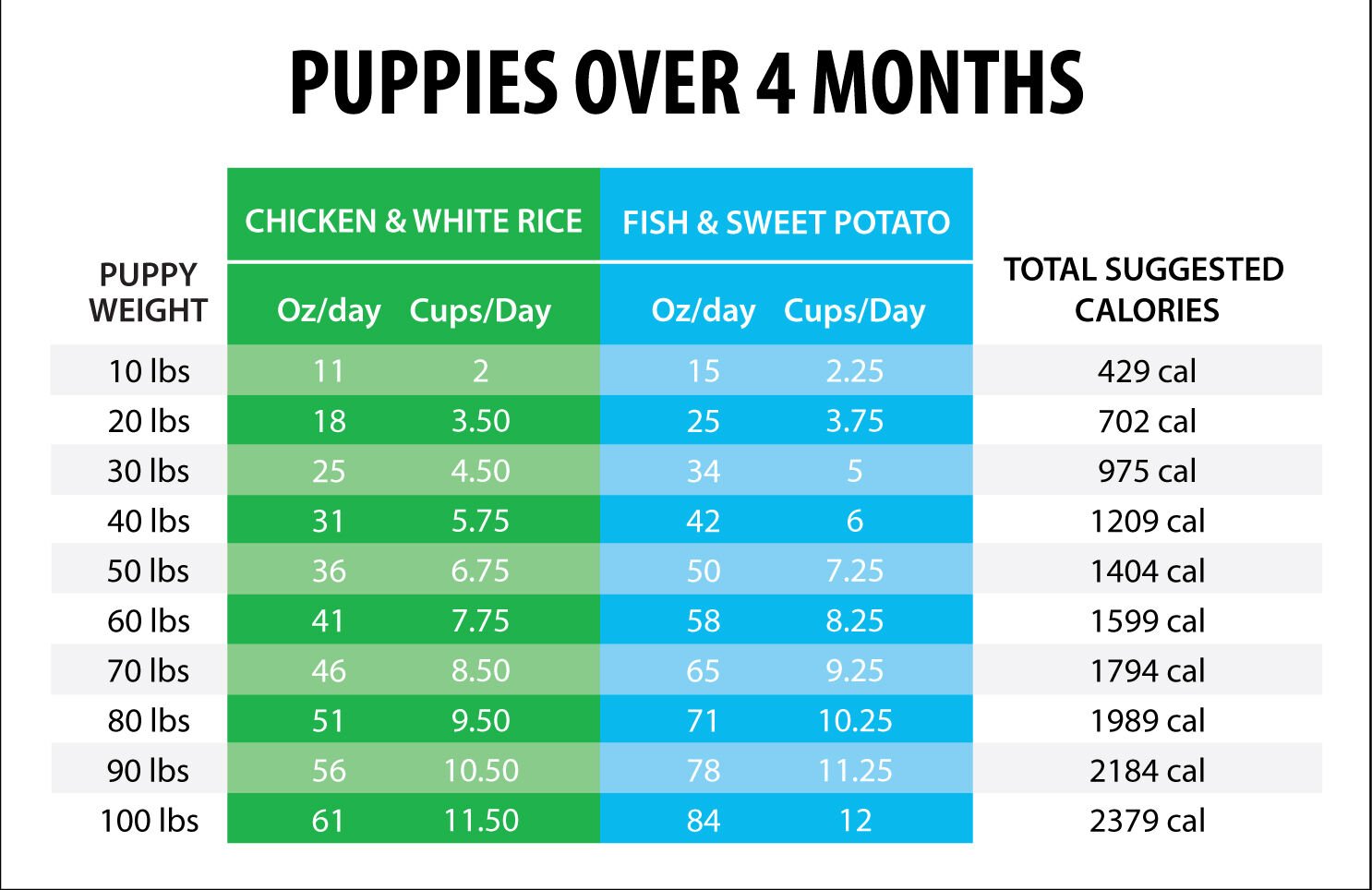
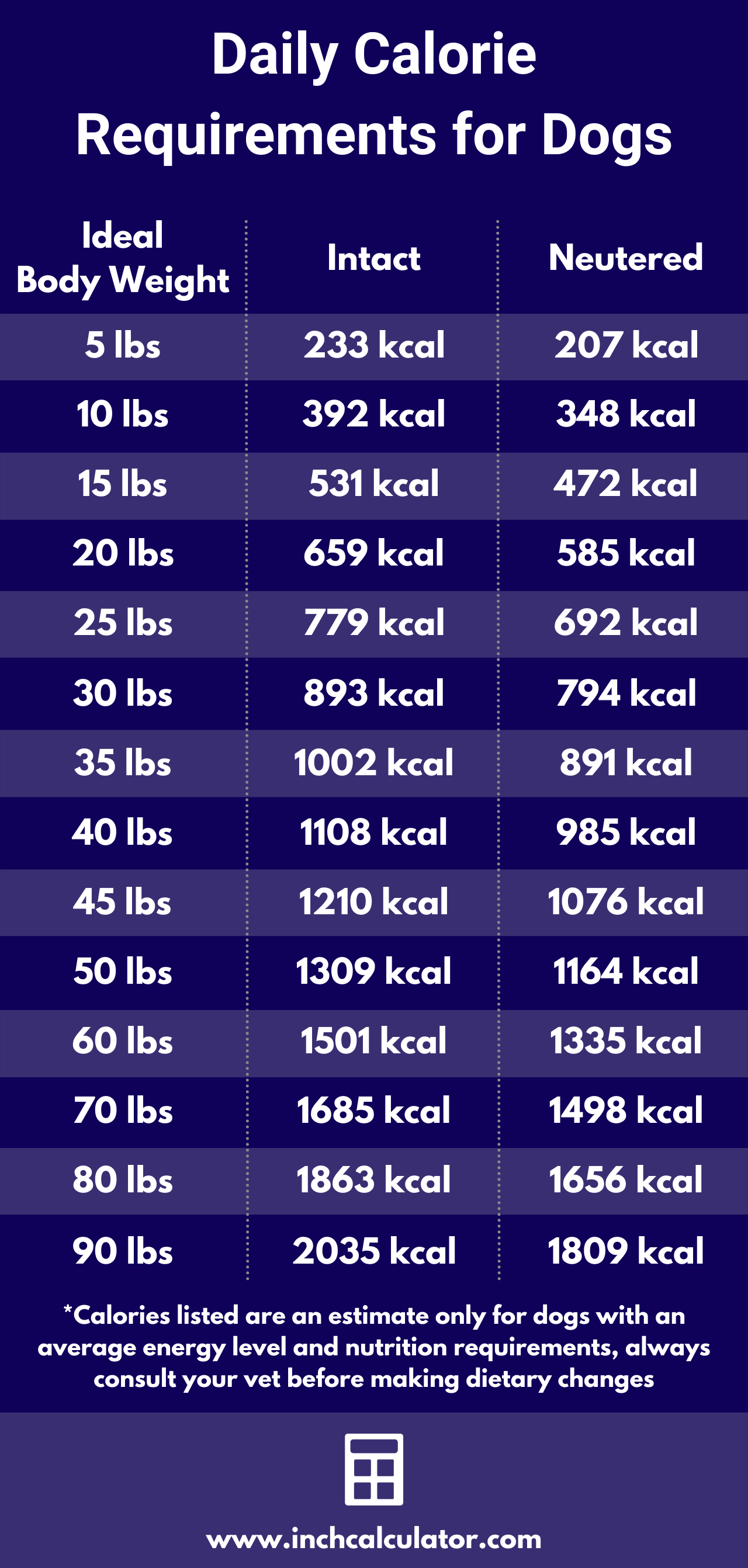
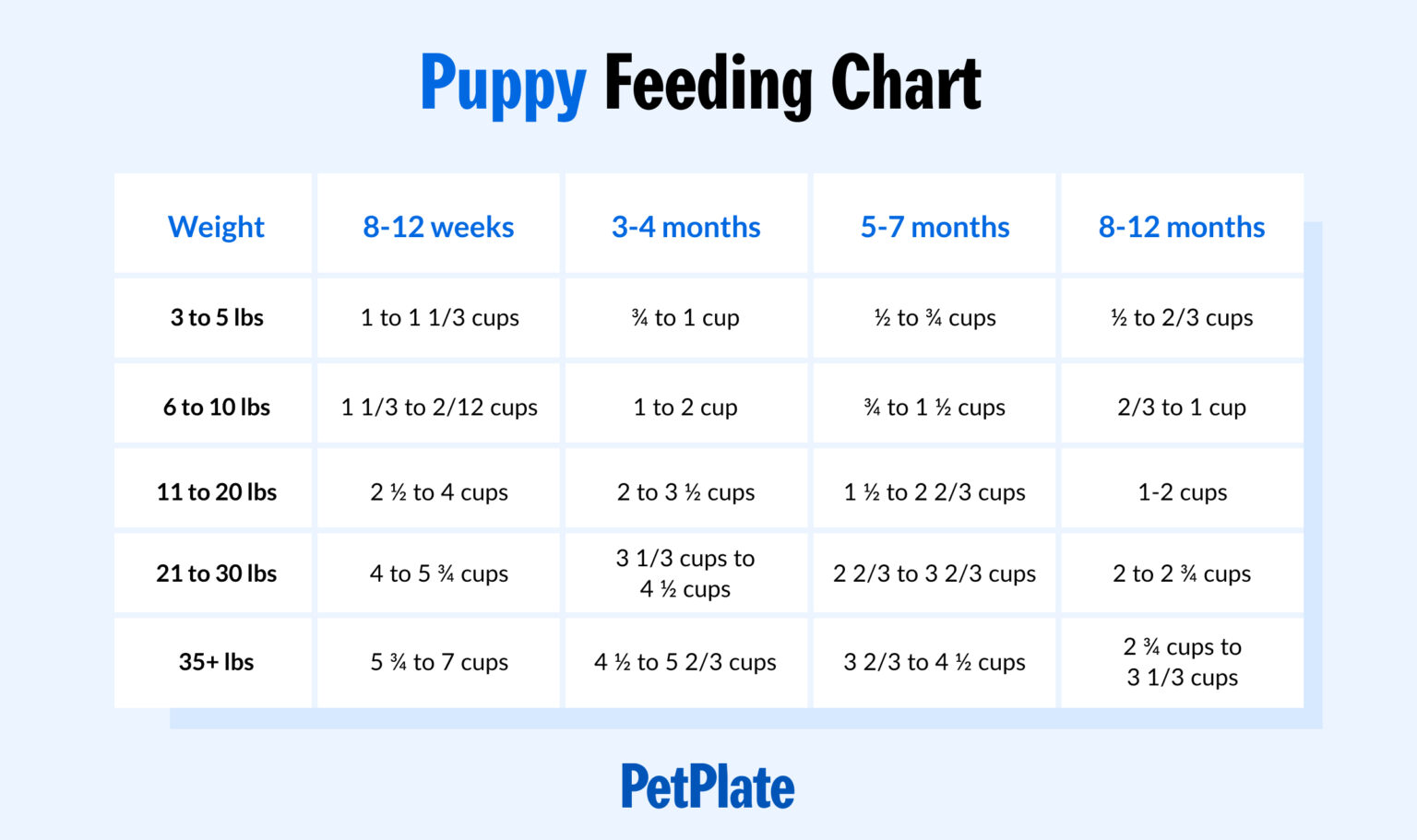
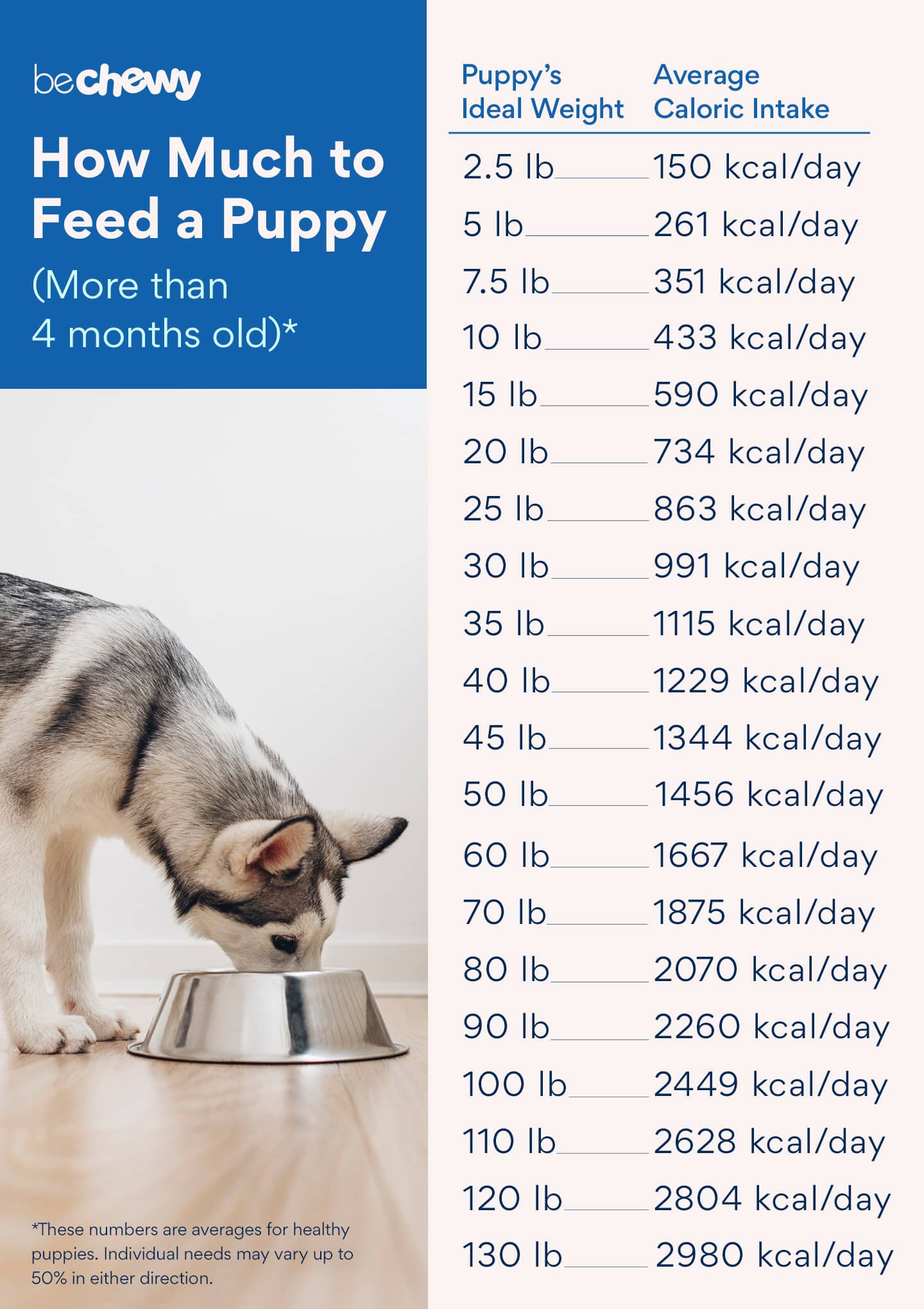
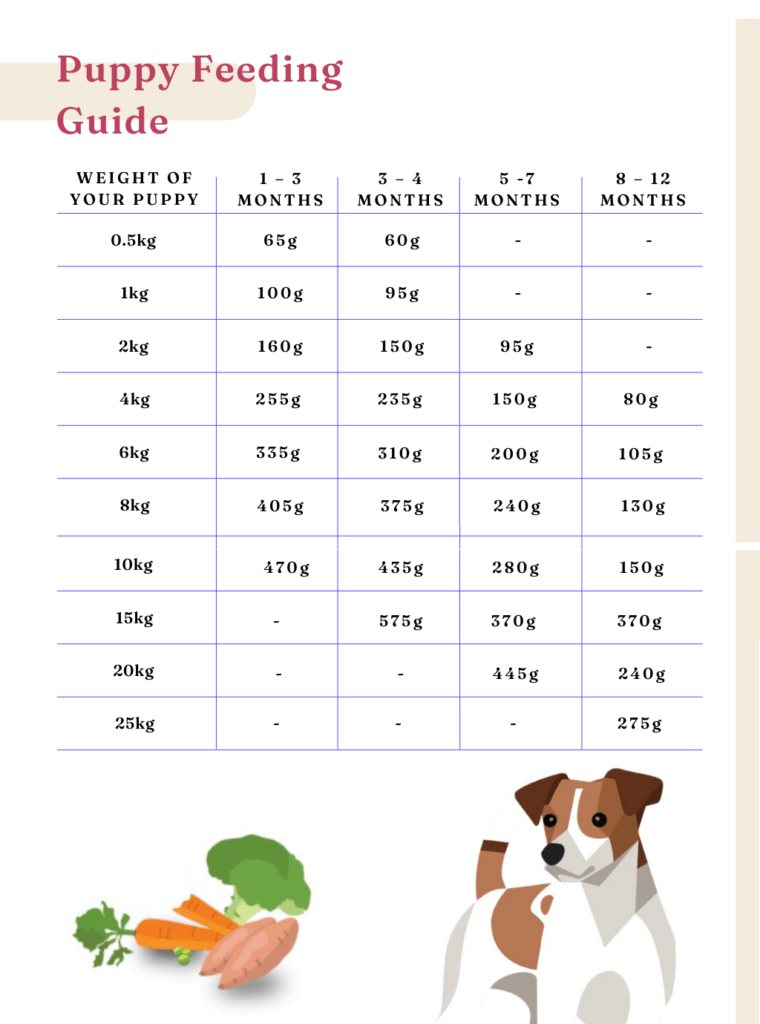
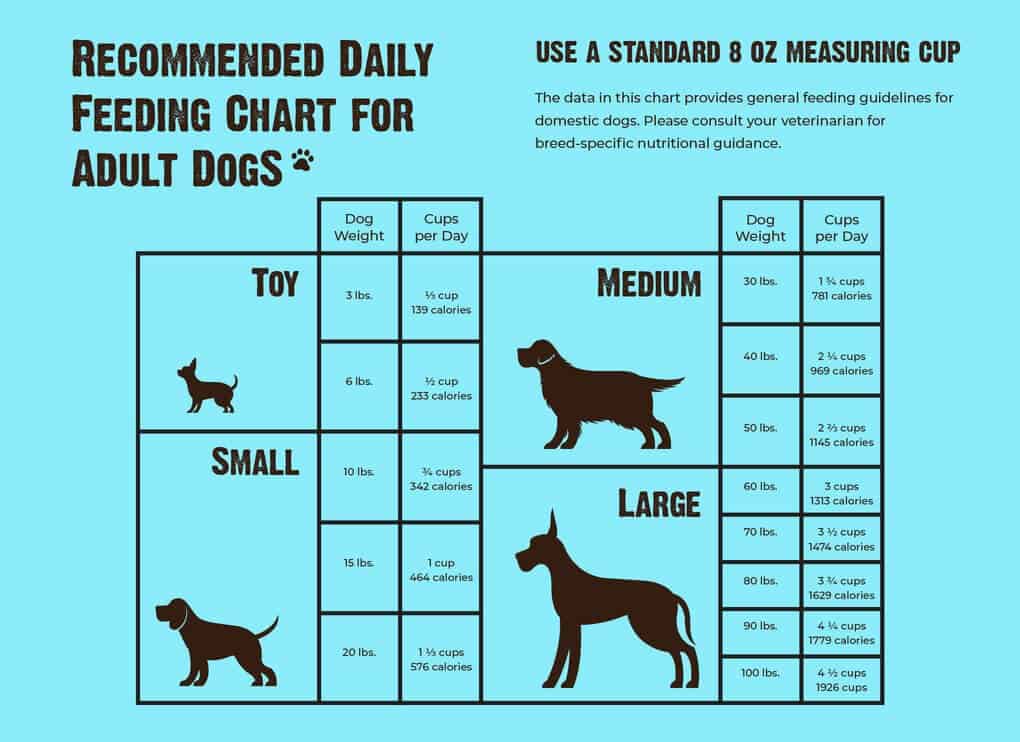


:max_bytes(150000):strip_icc()/puppy-feeding-schedule-2-d8f6749725de477eb32756329140a85b.png)
